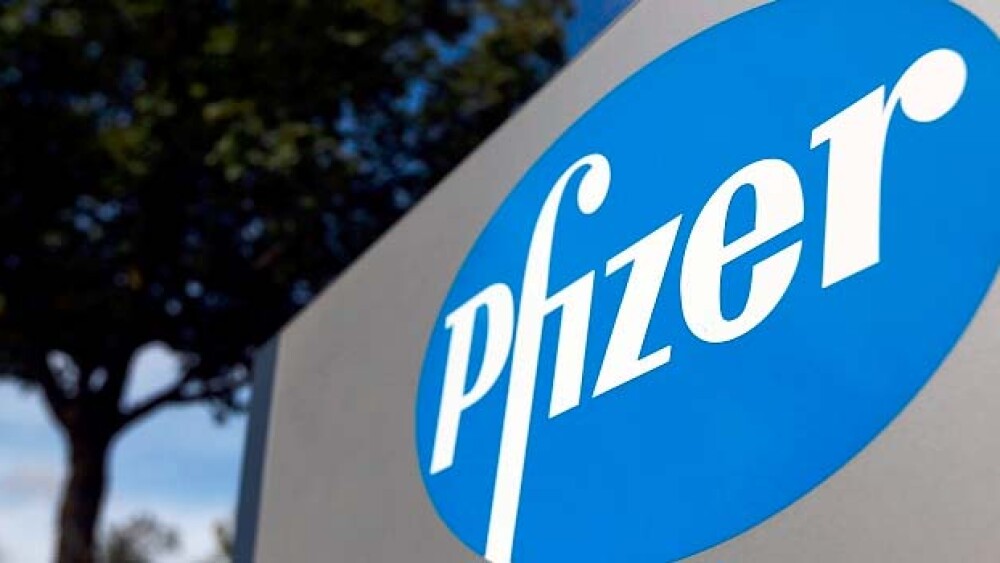Pfizer’s Xalkori, the first drug approved in the United States for patients with ALK-positive and ROS1-positive non-small cell lung cancer, secured Breakthrough Therapy Designation from the U.S. Food and Drug Administration for two new indications.
Pfizer’s Xalkori, the first drug approved in the United States for patients with ALK-positive and ROS1-positive non-small cell lung cancer, secured Breakthrough Therapy Designation from the U.S. Food and Drug Administration (FDA) for two new indications.
Xalkori (crizotinib) grabbed the designation for the treatment of patients with metastatic non-small cell lung cancer (NSCLC) with MET exon 14 alterations with disease progression on or after platinum-based chemotherapy. MET is a transmembrane tyrosine receptor kinase which is expressed in several types of cells. In patients with NSCLC, MET exon 14 alterations occur in approximately 3 percent of NSCLC tumors, Pfizer said. The Breakthrough Therapy designation for patients with metastatic NSCLC with MET exon 14 alterations was supported by antitumor activity shown in an expansion cohort of the Phase 1 PROFILE 1001 study.
The FDA also granted Breakthrough Therapy Designation for the treatment of patients with relapsed or refractory systemic anaplastic large cell lymphoma (ALCL) that is anaplastic lymphoma kinase (ALK)-positive. Anaplastic large cell lymphoma is a rare type of non-Hodgkin lymphoma, divided into ALK-positive or ALK-negative disease. ALCL comprises about two percent of all NHLs and approximately 20 percent of all T-cell lymphomas. Despite the activity of chemotherapy, many patients with ALCL relapse or require alternative treatment approaches, according to Pfizer.
The designation for patients with relapsed or refractory systemic ALCL that is ALK-positive was supported by the results from Study ADVL0912 and Study A8081013. Study ADVL0912 is a Phase I/II study that is evaluating the maximum dosing and assessing preliminary clinical activity in pediatric patients with relapsed or refractory solid tumors and ALCL. Study A8081013 evaluated Xalkori in pediatric and adult patients with advanced malignancies known to be ALK-positive other than NSCLC and included patients with relapsed/refractory ALCL. Both studies showed compelling antitumor activity in pediatric and adult patients who received Xalkori, Pfizer said.
Mace Rothenburg, Pfizer’s chief oncology development officer, said biomarker-driven therapies have changed the way cancer is treated and helps to ensure patients receive the right medications for the care of their disease. Through greater understanding of mutations that can occur in cancer patients, oncologists can better select medicines for treatment.
“These Breakthrough Therapy designations for Xalkori exemplify our commitment to precision medicine development and delivering medicines that have the potential to transform the lives of patients whose cancers carry these genomic alterations.”
Xalkori, a tyrosine kinase inhibitor, became a first-line standard of care for ALK-positive metastatic NSCLC in its first approved indication and has proven to be a practice-changing treatment for patients with ALK-positive and ROS1-positive NSCLC, Pfizer said. Xalkori is the only FDA-approved treatment indicated for both ALK-positive and ROS1-positive metastatic NSCLC. If the FDA approves Xalkori for the new indications, Xalkori will be the only TKI with demonstrated efficacy in three separate biomarker-driven indications in NSCLC, Pfizer added.





